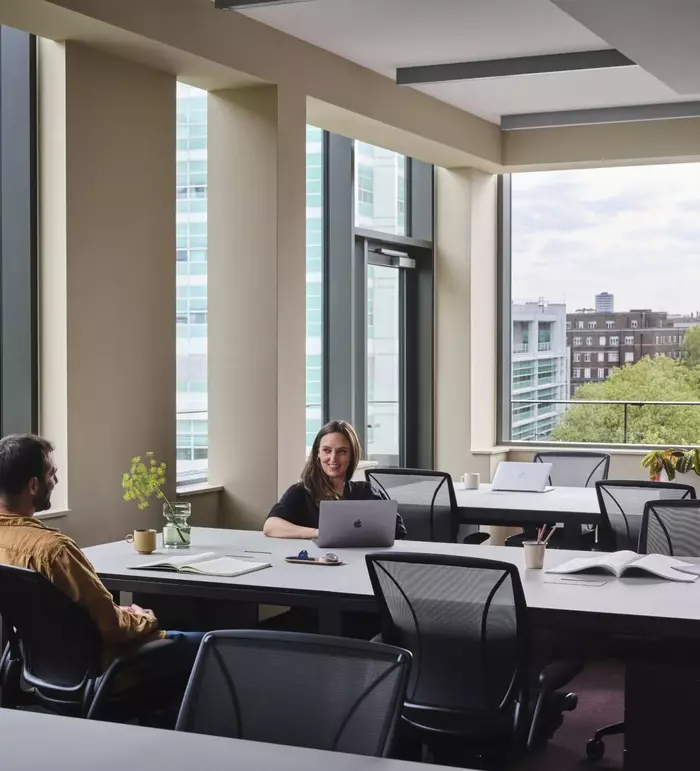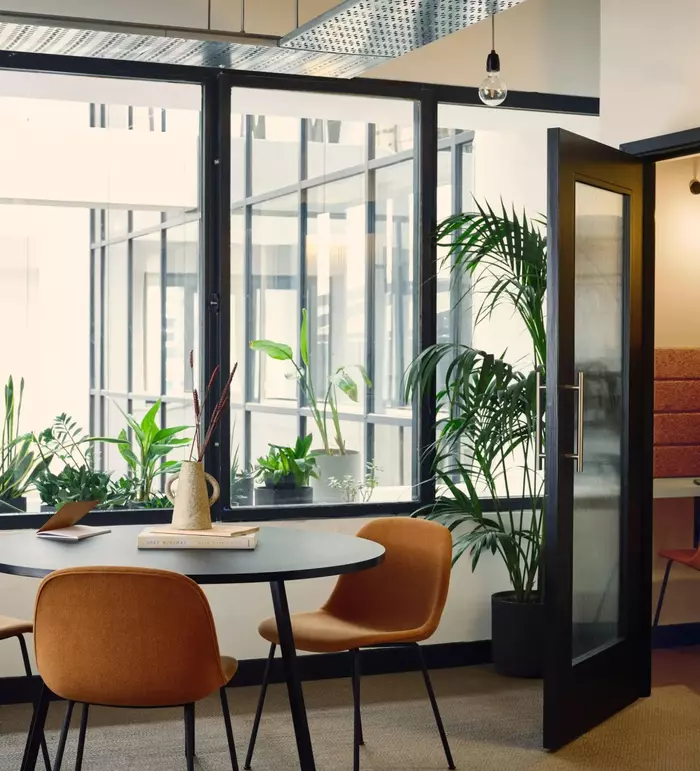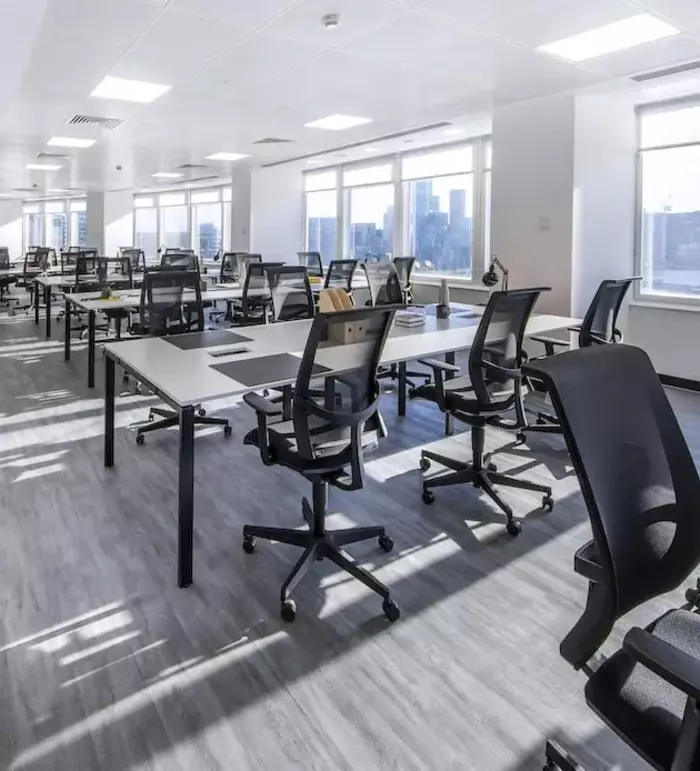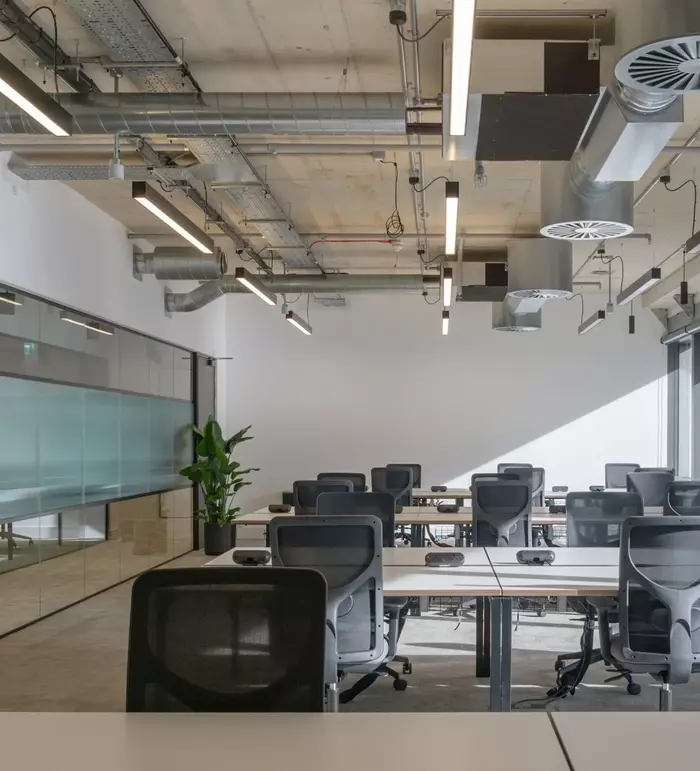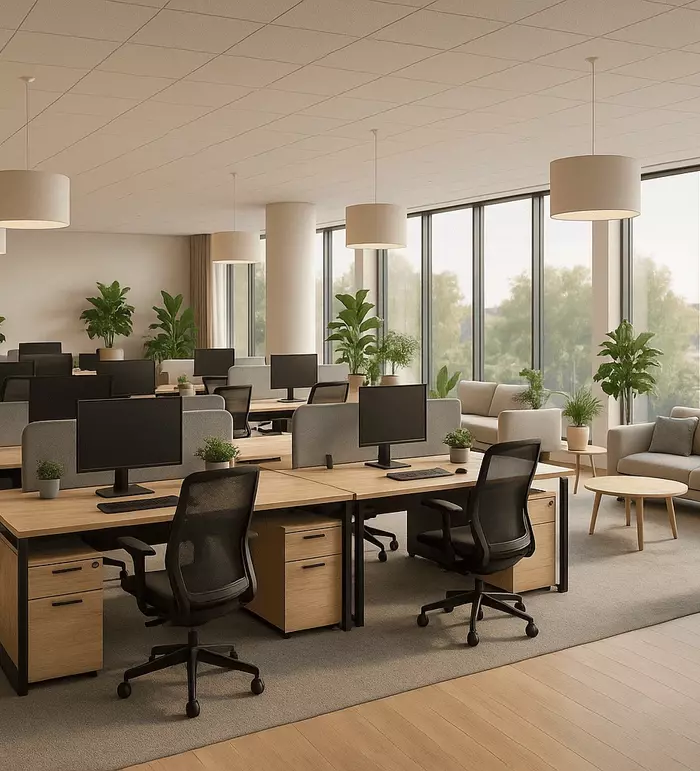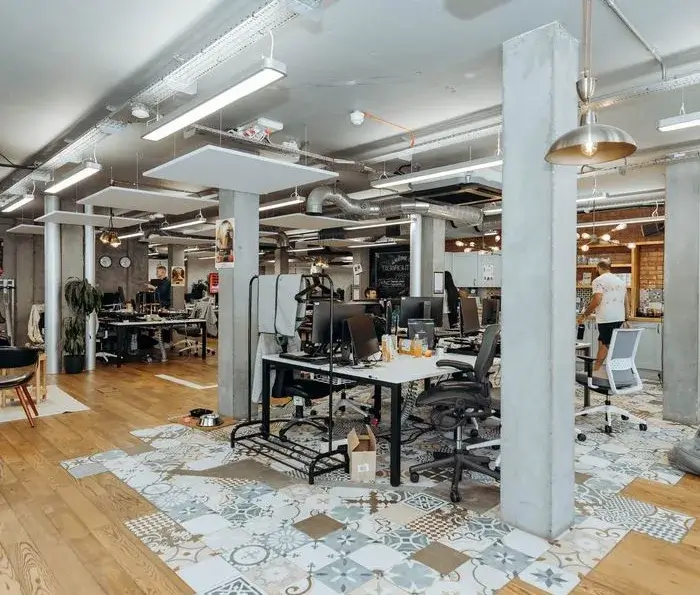In a business environment that changes ever more quickly, flexibility has never been more important. Whether you’re a startup or a freelancer, or a more established business looking to expand or move into a new market, a flexible workspace can help you achieve the level of adaptability you need to stay competitive.
But what is flexible office space, and how can it benefit you and your team? In this guide, we’ll explore what flexible office space is, the different types of flexible office space, their features and benefits, and how to find the perfect office space solution that’s right for your business.
Don’t hesitate to contact us if you want to learn more about the benefits of flexible office space and how they can help your business. With over 800 managed offices and over 5,000 serviced offices to choose from, we have something to suit all needs.
What is Flexible Office Space?
Flexible office space refers to a workspace designed for versatility, allowing businesses to adjust how they use their space as their needs develop and change.
Unlike traditional office leases, which often lock companies into long-term fixed contracts, flexible office solutions provide short-term lets on ready-to-use spaces with a wide range of options to up and downscale as your business needs change.
These spaces are ideal for businesses seeking agility, offering setups that range from private offices to coworking spaces. Flexible offices prioritise efficiency, enabling companies to focus on growth without the constraints of conventional leasing.
Flexible office spaces are also set up for adaptability in the ways that employees work, with a focus on arrangements like hot desking, hybrid working, and a mixture of shared and private spaces.
Different Types of Flexible Office Space
Serviced offices
Serviced offices are fully furnished, ready-to-use spaces managed by an external provider.
- All-inclusive costs on utilities
- Third-party providers handling duties from front-of-house maintenance
- Shared spaces and amenities such as lounges and meeting rooms
Best for: Small to medium businesses, startups, and teams looking for convenience and professional environments without long-term commitments.
Managed offices
Managed offices offer private spaces customised to a company’s needs but managed by an external provider.
- Third-party providers handling security and maintenance
- Lease lengths are longer than serviced offices but shorter than traditional offices
- Custom design, decor, and layout tailored to the needs of your business
Best for: Medium-sized and growing businesses that need a dedicated and branded space but don’t want the costs and responsibilities of internal management.
Coworking spaces
Coworking spaces provide shared work environments where individuals and small teams can work alongside other professionals in the same or similar industries.
- Major opportunities to meet and network with others in your industry
- Flexible contracts - often available for as little as a day at a time
- External provision of all office necessities and utilities
Best for: Freelancers, startups, and remote workers seeking a vibrant, social workspace with minimal commitment.
Hybrid workspaces
Hybrid workspaces combine elements of traditional offices and coworking spaces, with workers allowed to alternate between working at a central office and working remotely and with a range of private and shared spaces.
- A mixture of seating arrangements, from private offices to hot desks
- A range of meeting spaces and breakout rooms
- Either in-house or third-party management, dependent on company preference
Best for: Larger and more established companies looking to implement flexible and hybrid work policies for their workforce.
What are the Benefits of Flexible Office Space?
Cost efficiency
Flexible workspaces allow users to avoid high upfront costs for things like furniture, utilities, and fit-outs. Businesses pay only for what they use.
Scalability
Whether expanding or downsizing, flexible office solutions allow businesses to adjust their space requirements quickly, without being tied into a long-term lease.
Minimal downtime
Ready-to-use spaces mean you can move in, set up, and start working almost immediately. In coworking and shared workspaces, you can even start working the same day you book your space. This means less time spent on admin and more time on growing your business.
Access to prime locations
Flexible workspaces are often situated in premium business districts, giving even the smallest companies and the most independent freelancers access to prestige of London office space.
Networking opportunities
Coworking and shared workspaces, in particular, give workers and businesses the opportunity to meet and interact with others in their sector, fostering connections and potential collaborations.
Support for remote and hybrid work
Flexible offices enable businesses to accommodate remote and hybrid work policies quickly and easily, providing teams with both facilities to work independently and spaces to gather together when necessary.
What do Flexible Office Spaces Include?
- Furniture and equipment: Everything from desks and chairs to lighting, heating, and IT infrastructure
- Shared amenities: Access to kitchens, lounges, and meeting rooms, with many also offering benefits like food and coffee spaces and rooftop terraces
- Reception services: A reception desk with front-of-house staff employed by a third party to handle greeting visitors and managing mail
- Dedicated private areas: Private offices and focus zones to provide spaces for deep work away from the noise and distraction that can be a side effect of the collegial atmosphere that hot-desking and open-plan layouts foster
- Adaptable workstations: Everything from a range of plug-in-and-play connectivity options to modular desks and adjustable and ergonomic furniture
Because the flexibility of the leases means that providers can’t count on tenants being locked in, flexible offices also often offer additional benefits focused on employee wellbeing, with everything from events to dedicated gym classes and facilities often on the table.
What is the Difference Between Flexible Offices and Traditional Offices?
Flexible office spaces prioritise adaptability and versatility, with far shorter contracts, lower setup costs, external management, and scalability.
They are also set up for a different style of working, embracing opportunities to collaborate and share ideas with separate private spaces and enabling workers to come and go, sharing space and facilities as they need.
What to Consider When Assessing Flexible Office Space Options
Team size
A small team may thrive in a coworking space, but a larger team is more likely to need the stability and space of a serviced or managed office.
Budget
As with every business decision, you should start by determining your budget. Factor in cost per desk, additional amenities, and any extra services your team may require - and make sure to shop around, as flexible office providers have strong incentives to compete with each other on price.
Location
Select a location that aligns with your business goals. Think about proximity to clients and ease of access for your workers, and make sure to pick somewhere popular with others in your sector to make the most of networking opportunities.
Finding the Right Flexible Office Space Solution for Your Team
We hope this guide has answered all your questions, from ‘What is flexible office space?’ to ‘What are the benefits of flexible office space?’
If you think that flexible office space would be a good option for you and your business, then why not check out what we have available at Flexioffices? With over 5,000 serviced offices and 800+ managed offices, we can help you find the perfect solution for your team.

